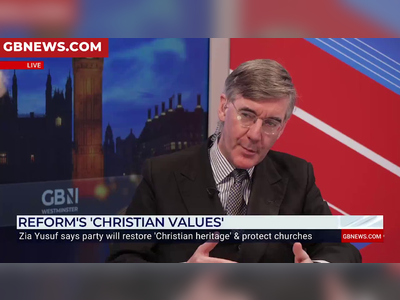Minister Rejects Stricter Noise Reduction Target for Schiphol, Citing Aviation Concerns
Controversial vote in the Dutch Parliament challenges government’s revised goals, risking prolonged noise pollution for residents.
In a development that underscores the growing tensions between environmental imperatives and infrastructural pragmatism, Minister Madlener of Infrastructure and Water Management of the Netherlands has labeled a recent parliamentary motion on reducing noise pollution at Schiphol Airport as 'very unwise'.
The motion, spearheaded by coalition partner NSC and backed by a slim majority of the Tweede Kamer, calls for a stringent noise reduction target of at least 17 percent starting in 2025.
This pushback comes in response to Madlener's earlier announcement that the government would scale back its original commitment from a 17 percent reduction to a more modest 15 percent.
The adjusted target aligns with a broader governmental strategy to balance aviation industry health with environmental and public health concerns.
'It's bad news for residents, as this will delay our plans by a year,' Madlener lamented, highlighting the procedural delays inevitable in adopting new measures.
'A shrinkage of 17 percent is too rapid and irresponsible for the aviation sector,' he argued, suggesting that such an abrupt move could destabilize an industry crucial to the Dutch economy.
The recent parliamentary mandate, although not legally binding, further complicates the government's path, as local courts have already admonished the state for insufficiently protecting residents from the airport's auditory impact.
A court ruling in March criticized the government for failing to adequately incorporate the interests of nearby residents in its aviation plans, deeming the state's actions unlawful and requiring it to enforce noise regulations within a year.
For now, the future of Schiphol's noise pollution strategy remains uncertain.
Madlener remains noncommittal about implementing the newly passed motion, emphasizing the necessity of cabinet discussions before any action.
With the clock ticking on both judicial and parliamentary mandates, the Dutch government faces mounting pressure to reconcile its environmental obligations with economic realities.
As debates evolve, the Schiphol noise issue stands as a poignant reminder of the intricate balancing act faced by modern policymakers in their quest to serve diverse interests in a complex world.
The motion, spearheaded by coalition partner NSC and backed by a slim majority of the Tweede Kamer, calls for a stringent noise reduction target of at least 17 percent starting in 2025.
This pushback comes in response to Madlener's earlier announcement that the government would scale back its original commitment from a 17 percent reduction to a more modest 15 percent.
The adjusted target aligns with a broader governmental strategy to balance aviation industry health with environmental and public health concerns.
'It's bad news for residents, as this will delay our plans by a year,' Madlener lamented, highlighting the procedural delays inevitable in adopting new measures.
'A shrinkage of 17 percent is too rapid and irresponsible for the aviation sector,' he argued, suggesting that such an abrupt move could destabilize an industry crucial to the Dutch economy.
The recent parliamentary mandate, although not legally binding, further complicates the government's path, as local courts have already admonished the state for insufficiently protecting residents from the airport's auditory impact.
A court ruling in March criticized the government for failing to adequately incorporate the interests of nearby residents in its aviation plans, deeming the state's actions unlawful and requiring it to enforce noise regulations within a year.
For now, the future of Schiphol's noise pollution strategy remains uncertain.
Madlener remains noncommittal about implementing the newly passed motion, emphasizing the necessity of cabinet discussions before any action.
With the clock ticking on both judicial and parliamentary mandates, the Dutch government faces mounting pressure to reconcile its environmental obligations with economic realities.
As debates evolve, the Schiphol noise issue stands as a poignant reminder of the intricate balancing act faced by modern policymakers in their quest to serve diverse interests in a complex world.











